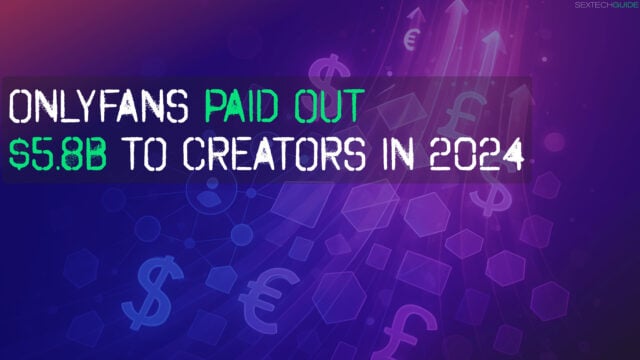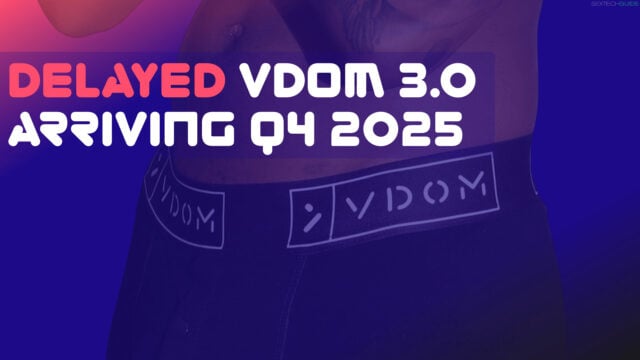On December 18, 2020 a bipartisan bill named the Stop Internet Sexual Exploitation Act (SISEA) was put forward in the US. If implemented, the bill would have huge consequences for porn sites and services, and potentially for sex workers who use them.
What is the SISEA bill?
The bill, in its own words, is designed “to prevent the uploading of pornographic images to online platforms without the consent of the individuals in the images.” It was introduced by Oregon senator Jeff Merkley and Nebraska senator Ben Sasse.
The intention is to help prevent the exploitation of sex workers and children online, as well as to prevent porn featuring other non-consenting people get uploaded.
The bill covers any site that “hosts and makes available to the general public pornographic images”, so could potentially cover general and social media sites featuring porn, rather than simply dedicated porn sites.
What would SISEA mean for porn sites?
The law would require sites to ensure users uploading pornographic images verify their identities, and that they are old enough to consent to sexual acts under the law of the state they’re in. Uploaders would have to submit signed consent forms from everyone featured in the content.
Sites hosting porn would have to run a 24-hour phone hotline on which people could report that they are featured on the site in explicit images without consent. Sites would have to remove content relating to such claims within two hours.
Sites unable to fund a hotline and a verification and moderation team large enough to deal with the proposed measures would risk closure. Smaller sites without the staff spending power of behemoths such as Pornhub would be most at risk.
Under the bill, a database of individuals who have stated that they do not consent to the uploading of any pornographic images in which they feature would be established by the government. Sites would have to check that individuals in their pornographic content do not feature on the database before uploading it.
The bill states that the US government would “protect the personally identifiable information of any individual listed in the database”.
The wider picture
The bill proposal followed the passing of the Stop Enabling Sex Traffickers Act (SESTA) and Allow States and Victims to Fight Online Sex Trafficking Act (FOSTA) bills in April 2018, designed to crack down on sex trafficking via sites such as Backpage.
The FOSTA/SESTA bills gave US authorities power to shut down any site on which escort services are advertised. The result has been a 2021 online landscape on which sites such as OnlyFans and Reddit are often quick to take action against users and content linked to sex work, even if such work is legal where they are.
Senator Merkley suggested that a New York Times investigation into content on Pornhub featuring children influenced SISEA.
Senator Sasses said: “Human dignity matters. A decent society has an obligation to fight sexual exploitation and human trafficking. For years, Pornhub and its parent company Mindgeek monetized rape, abuse, and child exploitation. While these suit-wearing traffickers got rich, their victims have lived with the pain and fear. That has to end now.
“Our bill is aimed squarely at the monsters who profit from rape. Washington ought to be able to come together to combat human trafficking and make this right.”
Pornhub is overhauling its user verification process, banning new uploads as it updates its processes in an attempt to avoid falling foul of toughened regulations.
What could SISEA mean for sex workers?
There is concern that SISEA may stamp on the livelihoods of sex workers instead of purely cracking down on sex trafficking, child exploitation and other non-consensual porn.
A more stringent, legally-binding porn content uploading process would make it tougher for those legitimately making money from uploading their own porn content to do so. The law would apply to US sites, but users around the world would have to comply with the rules unless the US sites launched different processes for different countries.
While Facebook and Instagram do not allow porn on their services, Twitter does, and is used for promotion by many sex workers. As a US-owned company, Twitter would be compelled to apply the rules in the bill to pornographic content it hosts, at least within the US.
Concerns have been raised that sites such as Twitter and OnlyFans, which is based in the UK, may be likely to follow Tumblr in simply banning porn content. This would potentially allow them to operate legally in the US rather than invest in more expensive porn verification processes.
The reaction
The bill would requires users uploading pornographic images to verify that they are old enough to consent to sexual acts in the state they’re in, rather than verifying that they are 18 – the age you legally have to be in the US to appear in pornographic content.
Webchat Startup News wrote that the bill was “lacking any indication that it will help victims, and instead seems to further victimize children by implying the age of consent for sexual acts could potentially be the age of consent to pornographic images.”
Concerns have also been raised about the verification process required under the bill potentially proving impossible for anyone who is undocumented.
Ana Valens, adult entertainment reporter for the Daily Dot (and SEXTECHGUIDE contributor), said that the proposed bill “creates impossible expectations and standards, doesn’t solve online sexual exploitation, and instead creates an incentive to pull adult material from the web altogether, either via NSFW content purges or indie sites closing down.”
The Free Speech Coalition (FSC), a US-based adult industry trade association, called SISEA “unworkable”.
“Most non-adult platforms would likely react by terminating even potentially suggestive content rather than manage massive databases of personal information or expose themselves to the liability that comes with it,” the coalition said.
Read Next: Instagram’s rule clarifications remain a confusing mess for adult creators






Leave a Reply